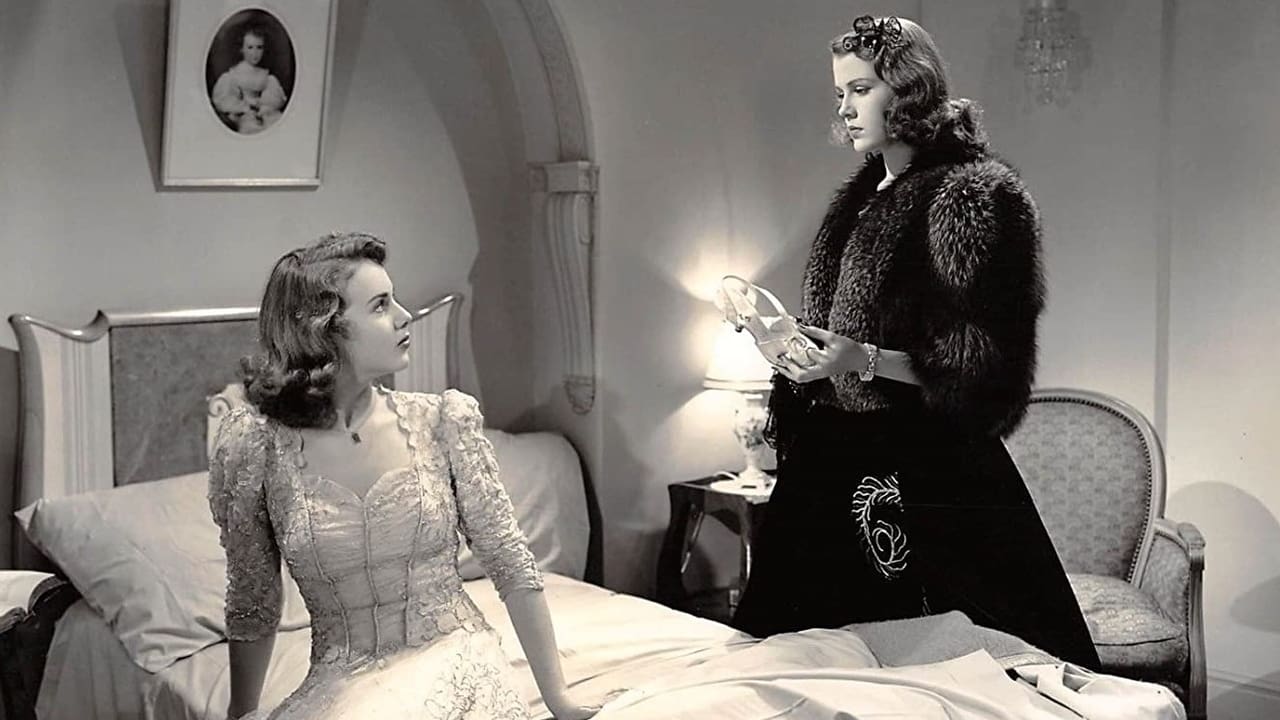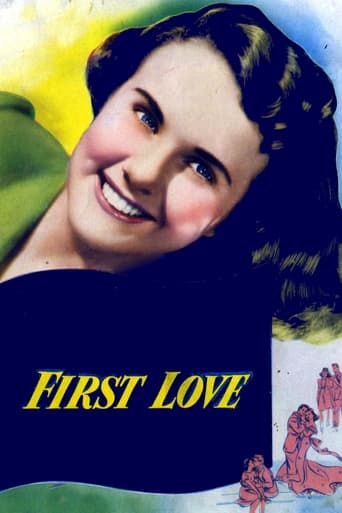

It's the kind of movie you'll want to see a second time with someone who hasn't seen it yet, to remember what it was like to watch it for the first time.
... View MoreEach character in this movie — down to the smallest one — is an individual rather than a type, prone to spontaneous changes of mood and sometimes amusing outbursts of pettiness or ill humor.
... View MoreAll of these films share one commonality, that being a kind of emotional center that humanizes a cast of monsters.
... View MoreA clunky actioner with a handful of cool moments.
... View MoreTwo very young actors make up this cinderella story, Robert Stack (just 20) is the hero and Deanna at 18 still has quite a bit of puppy fat on her face (I didn't like the hair style - was it to make her seem older? ). She, an Orphan like Cinderella lands up in - not step mother here, but rich maternal uncle's home. Here of course there was one cousin, of the step-sister type the other cousin of opposite gender, the aunt and even the uncle are really not villainish by nature, but villain by the lack of empathy, not only towards our Cinderella, but towards the whole world. There are of course nice songs too, has to be when Deanna is there. The movie is well made, and very watch-able, and of course the end is predictable in any fairy tale. Along with Deanna there are two more lovely girls, Helen Parish (the Cousin), a quite frequent co-actor of Deanna, and June Storey, another Canadian, both trying to win the Prince Charming.There are two interesting things here, one puzzled me, till I understood what it was and other one, the main song, wasn't properly visualised.If there is a call to sing a Strauss' waltz, even if you specify it is the Junior's, unless you know which one it is, no one can sing it. More so, it had been told to have a bit of modifications, some bars were changed, probably to cater to her voice-spectrum by the singer, Mme Cottellini, who was supposed to sing it, mentioned. Even more problem in it was, that even had she caught the opening, she still would have been in for a trouble, since it was a mix of three of Strauss' Waltzs, Schatz-Walzer, the beautiful Rosen aus dem Süden(the main body) and lagunen Walzer (finale) : unless one knows that, it would be impossible.The interesting and wonder-ful (not necessary wonderful) portion was, after this waltz, when Deanna was dancing with Stack, I observed there was something in her left hand, what was it I wondered.... and then it struck me. That was the cloak-ticket. And she had retained it, held between the forefinger and middle finger of her hand, till she exchanged it for cloak. In fact she had been playing with it, even during the 'spring waltz'. This was unexpected that one would go for that much precision. I wonder who thought about it, Koster or Deanna ? I am sure the viewers won't have noticed it, or even wondered if it wasn't there (you could have some pocket or fold in the dress to keep it).
... View MoreIf you are fortunate enough to be blessed with a golden goose, you take very good care of it. The lovely singing sensation from Winnipeg was leaving her adolescent years behind and developing into an extremely attractive young woman when Universal dared to expose her to 'her first screen kiss'. The story didn't have to have great lines; just a happy ending. "Cinderella" updated was deemed sufficiently safe.Hollywood discovered that in the middle of the Depression, movie fans loved to escape into the swank life of millionaires with large mansions requiring equally large servant staffs. Thus, our Cinderella had only to endure the acid tongue of Helen Parrish who seemed to make a small career of being mean to Deanna Durbin a la Jane Withers and Shirley Temple. With only one evil stepsister (first cousin in this instance)with whom to contend, our heroine had two good fairies. One was the finishing school principal, Kathleen Howard, and the other was the butler played ably by Charles Coleman. Other recognizable supporting cast members included Mary Treen, Frank Jenks, Eugene Palette and Thurston Hall. There are four numbers which Miss Durbin sings in "First Love"."Home, Sweet Home" is sung by the graduating heroine at the request of her classmates. "Amapola" is sung at the occasion of her first encounter with the servant staff at Uncle Jim's mansion.The piece de resistance which captures Prince Charming's attention at the ball is s Strauss medley strung together seamlessly into what sounds like a single song but consists of brief melodies from "The Gypsy Baron"(Schatz waltz); "Roses From the South"; a third melody unidentifiable at this writing; and an orchestral finish with "Voices of Spring". Lyrics were provided by Ralph Freed and musical direction by Charles Previn who conducted many of Deanna Durbin's recordings for Decca.The final piece is 'One Fine Day' from Madame Butterfly which has been done by other sopranos such as Grace Moore and Rise Stevens but not with the intent and purpose of a good fairy to win the hearts of a panel of judges nor more surprisingly, with a happy ending which Puccini certainly never intended.If you want realism, then this would certainly not be your cup of tea but if you are even considering a Deanna Durbin movie, then you are probably not in that group. If you want to learn more about this amazing screen star who rivaled Shirley Temple and Judy Garland as an international box office draw, this is the movie you should see as she gave up her perky adolescent ways from her first five movies and moved into the ranks of an adult star. If you have the opportunity to see this film, don't miss it but hold onto your heart!
... View MoreThis 1939 take on 'Cinderella' works like a charm, and I honestly would never have guessed as much. I found myself being continuously bewitched by it, its sincerely touching and funny script and dialogue, the wealth of small character parts from the laconic spinster teacher ("Old maids are only happy when they cry, you'll find out") and the personable servants to the zany rich family that Durbin's orphan girl has to stand up to.And of course, over and above everything else, there is Deanna Durbin, a full-fledged young leading lady with a miraculous voice and loads of screen presence and pathos (listen to her sing 'Un bel dì' from 'Madame Butterfly' at the end!). Blonde hunk Robert Stack has his first part ever as the Prince Charming who is left with the empty slipper, but only after a gorgeous series of incredibly romantic encounters.
... View MoreA maturing DEANNA DURBIN and a strikingly handsome young ROBERT STACK are the enjoyable romantic leads in this Cinderella tale that spins along with a few Durbin songs tossed in for good measure. Deanna plays the orphaned cousin of a rich and snobbish family that tries to get her to stay home from a lavish ball. With the help of servants (instead of mice), Deanna gets to attend the ball, delivers an outstanding solo, meets the handsome "prince" (Stack) and has to fend off the insults of her snobbish cousin (Helen Parrish). The slight plot moves effortlessly toward a happy ending. Durbin fans should love this one--it's easy to take and easy to love. Eugene Pallette gives a fine comic performance as her gruff uncle and the rest of the cast does a professional job under Henry Koster's direction.
... View More